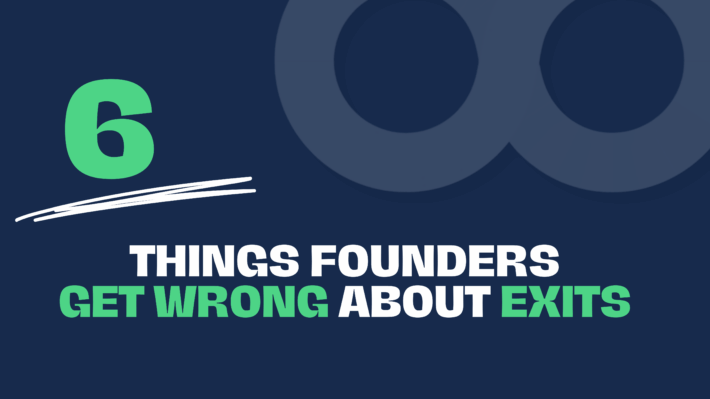The Rise of Employee Ownership in Law Firms in the UK

In recent years, employee ownership has emerged as a prominent trend in the legal sector, with a growing number of law firms adopting this model to ensure long-term stability, engage employees and protect their independence.
Employee ownership allows firms to retain control, preserve their culture and provide staff with a direct stake in the firm’s success. Here, we explore several prominent examples of law firms that have transitioned to employee ownership, how they navigated the change and what their results tell us about the future of the legal profession.
Employee Ownership in the UK Legal Sector
Employee ownership refers to a model where employees hold an ownership stake in the business, often through an Employee Ownership Trust (EOT). This model is becoming increasingly common in many sectors where companies wish to maintain independence while offering staff a stake in the future growth of the business.
The legal sector, long dominated by the traditional partnership model, is now seeing more firms making the transition to employee ownership. This change is often driven by a variety of motivations, including the desire to safeguard firm culture, ensure long-term stability and provide succession planning without the need for external buyers or mergers.
Find out more information about the differences between other selling options.
Myerson Solicitors: Based in Greater Manchester
One of the most recent and high-profile examples of a UK law firm making the transition to employee ownership is Myerson Solicitors. Based in Altrincham, Greater Manchester, Myerson is one of the first law firms in the region to become 100% employee owned. The firm, which has been operating for over 30 years, made this transition in September 2024 and is now a shining example of the employee ownership model’s potential to succeed in the legal sector.
The decision to adopt employee ownership came after careful consideration of how to best ensure the long-term future of the firm, its employees and its clients. Myerson’s management team, led by CEO Carl Newton, recognised that the firm’s success was built on the expertise, commitment, and passion of its employees.
By transitioning to employee ownership, the firm would be able to ensure that all of its employees – whether solicitors, support staff or management – had a direct stake in its future success. This decision also allowed the firm to retain its independence, avoiding the potential pitfalls of being acquired or merged with a larger corporate entity, as often happens with law firms in the face of succession issues.
One key benefit of this transition is that Myerson has been able to preserve its strong, people-first culture. The firm prides itself on providing a collaborative environment where all employees, regardless of role, are encouraged to contribute ideas and shape the future direction of the business.
Bennett Oakley: The First Employee-Owned Law Firm in Sussex
Another notable firm that has embraced employee ownership is Bennett Oakley, a law firm based in Sussex. Bennett Oakley made history in November 2022 when it became the first law firm in the region to adopt an employee ownership structure. With offices in Brighton, Burgess Hill, Hassocks and London, the firm has built a reputation for providing high-quality legal services, particularly in the fields of family law, dispute resolution, and employment law.
The decision to convert to employee ownership was driven by a desire to ensure the long-term security of the firm and maintain its strong relationships with clients and staff. As former Managing Director Simon Elliott explained, employee ownership was the natural next step for a firm that wanted to avoid the potential disruption of a merger or sale to a larger corporation. By transitioning to an Employee Ownership Trust (EOT), Bennett Oakley was able to secure the future of the firm while continuing to build on its 50-year history.
For Bennett Oakley, the transition to employee ownership was about more than just business continuity – it was also about ensuring that the firm could continue to offer a positive working environment for its employees.
The firm’s leadership recognised that a happy, engaged workforce leads to better client service and higher levels of performance. With employee ownership, the firm’s employees are not just working for a paycheck; they have a personal stake in the firm’s financial success and its reputation in the community.
In the years since the transition the firm has retained its team of skilled professionals, ensuring that clients receive consistent, high-quality legal services. Employee engagement has increased, and there has been a noticeable shift in the firm’s overall culture.
Oliver & Co Solicitors: A North West Success Story
Oliver & Co Solicitors, based in Chester, is another prime example of a law firm that has embraced employee ownership as part of its long-term strategy. In 2023, the firm became the largest law firm in the North West of England to make the transition to an employee-owned structure. With over 85 employees, Oliver & Co is a significant player in the region’s legal landscape, offering services in personal injury law, medical negligence, and family law.
The transition to employee ownership at Oliver & Co was driven by a desire to preserve the firm’s independence while ensuring that all employees had a direct stake in its ongoing success. The firm’s founders recognised that transitioning to an Employee Ownership Trust would provide a sustainable model for succession planning without the need for an external buyer or merger. As a result, employees now share equally in the profits and decision-making processes of the firm, making them integral to its future growth.
Since the transition, Oliver & Co has seen positive results, both in terms of financial performance and employee satisfaction. The firm has maintained its strong client base and continues to grow its practice, with a particular emphasis on providing high-quality, client-focused legal services.
What does the future of EO in Law Firms look like?
The trend toward employee ownership in the legal sector is gaining momentum, and the success stories of firms like Myerson Solicitors, Bennett Oakley, and Oliver & Co show that this model can work in practice. Employee ownership offers a number of advantages, including enhanced employee engagement, cultural preservation, and long-term stability.
As more firms recognise the benefits of this structure, it is likely that the number of employee-owned law firms will continue to grow, particularly in regions like the UK and EU where this model is becoming more widely recognised.
One of the key drivers of this trend is the growing demand for greater work-life balance and job satisfaction in the legal profession. As the industry continues to evolve, law firms are recognising that their success is closely tied to the well-being and motivation of their employees. Employee ownership provides a tangible way to align the interests of both the firm and its employees, ensuring that everyone has a stake in the firm’s success.
The success of these early adopters of employee ownership is likely to inspire other law firms to explore this model as a way to secure their future, preserve their culture, and offer employees a more meaningful role in the business. As employee ownership becomes more mainstream, it may ultimately reshape the way law firms operate, not just in the UK and EU but globally.





